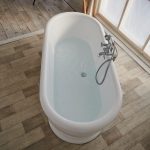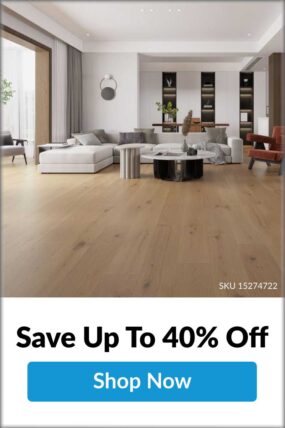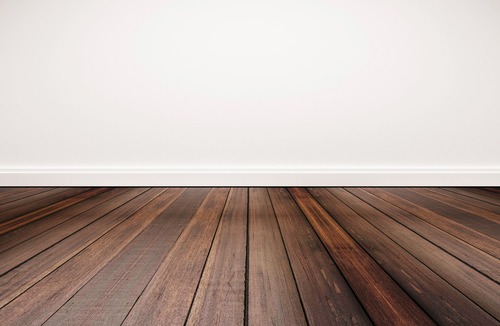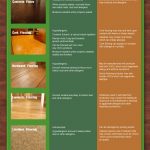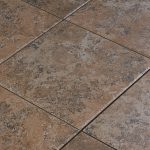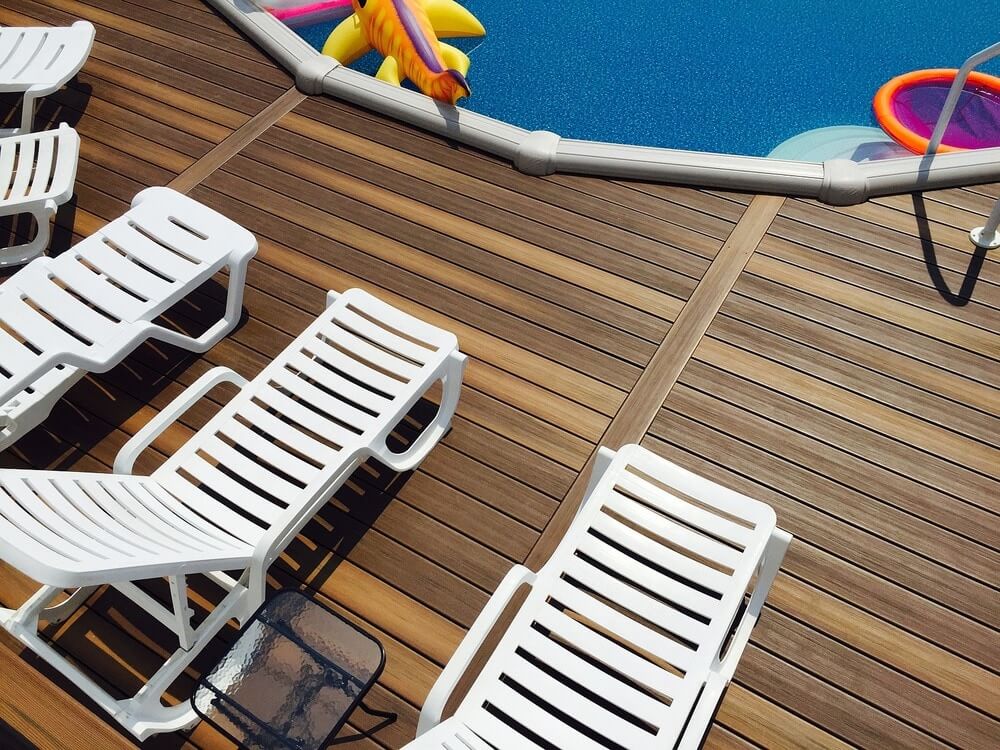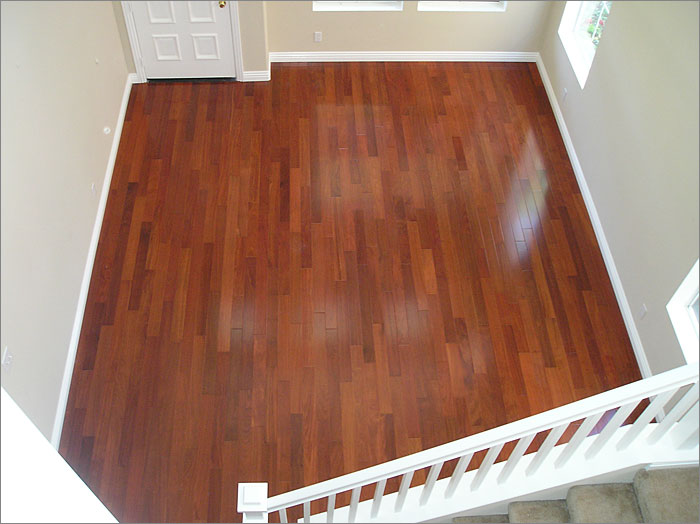When it’s time to choose new flooring for a commercial property, there are a few important things to consider. You no doubt want a floor design that is durable, stylish, and tailored to meet the specific needs of your facility. Fortunately, you’ve got plenty of options when you shop BuildDirect’s expansive inventory of quality flooring products.
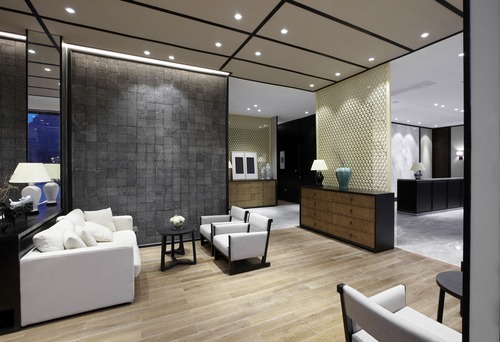
If you’re already feeling overwhelmed with the dizzying array of flooring options, rest easy knowing that BuildDirect has your back. To help make the decision easier, we’ve put together a quick list of 5 of the best flooring types for different businesses, along with their pros and cons.
1. Vinyl Plank Flooring
It’s not difficult to see why many business owners gravitate toward vinyl plank flooring. Easy to install and durable, vinyl plank flooring uses innovative technologies to deliver high-performance at a reasonable cost. To put things simply, it’s one of the easiest ways to achieve a modern and stylish flooring for your business, especially given the fact that you can save money on flooring installation by doing it yourself.
- Pros: The chief benefits of vinyl plank flooring are its abrasion, moisture, and fade-resistant properties. It also comes in a variety of colors and designs, providing you with endless options to suit your business.
- Cons: Although vinyl plank flooring can easily withstand high-traffic, it can be punctured with sharp objects, so be sure to cover furniture feet with felt. It can also feel somewhat cold and hard.
- Best for: Vet clinics, cafes, restaurants, dental offices, and practically every commercial application.
2. Laminate Flooring
Laminate flooring shares many similarities with vinyl plank flooring. Both types are easy to install, come in a wide range of modern styles, and offer a more affordable alternative to solid wood flooring. The difference is that laminate flooring is made from wood products, while vinyl consists of PVC or polyvinyl chloride.
- Pros: If you don’t want to splurge on hardwood floors for your business, laminate flooring is an attractive alternative to natural wood. Due to its thickness, it’s more comfortable to walk on compared to vinyl and provides greater warmth. If you place importance on using “green” building materials, laminate is also a better choice over vinyl.
- Cons: Laminate flooring is slightly more expensive compared to vinyl and isn’t as moisture-resistant. It’s not a good choice for bathrooms, laundry rooms, and anywhere that requires a wet mop.
- Best for: Commercial applications where moisture isn’t as much of a concern, such as boutique shops and high-end retail stores.
3. Engineered Wood Flooring
While engineered wood flooring may not be a particularly common flooring type for commercial applications, it’s worth considering for many business owners. For example, those who work in organizations where image is extremely important may find that engineered wood flooring is the best option for their commercial space.
- Pros: With engineered wood flooring, you get the look and feel of solid wood flooring without the high maintenance. However, it is recommended that you choose engineered wood with the toughest finish to withstand high traffic.
- Cons: Although the cost isn’t as high as solid wood flooring, engineered wood is still too steep a price for many business owners.
- Best for: Fancier restaurants, upscale boutiques, prestigious firms, and organizations.
4. Ceramic Tile
Ceramic tile is an incredibly versatile flooring type that is impervious to water. The ceramic tiles are resistant to both heat and stains, making them an optimal choice for those in the food industry.
- Pros: Ceramic tile comes in a vast array of colors, shapes, and patterns. It’s also a breeze to care for and is an affordable option for business owners.
- Cons: Tile is incredibly hard. If you run a business with breakable items, be aware that such items will be smashed to pieces after being dropped on a ceramic tile floor. While it may be cheaper than porcelain tile, ceramic tile is also not as durable and moisture-resistant.
- Best for: Commercial kitchens in restaurants, schools, or churches.
Talk with a Flooring Expert
Still not sure which flooring type is best for your specific commercial application? Talk with our flooring specialists at BuildDirect! We’ll help you weigh the pros and cons of each flooring type so that you can make a smart decision that ultimately benefits your bottom line.


